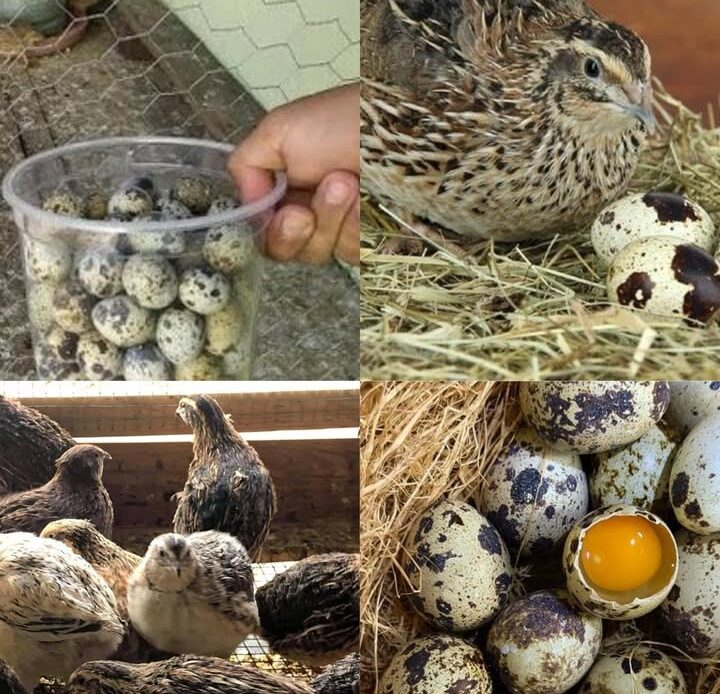Raising quails is becoming an increasingly popular choice for small-scale farmers, backyard poultry enthusiasts, and those looking for a sustainable source of high-quality eggs. Quails require less space than chickens, produce a high number of eggs, and are relatively easy to care for. However, proper quail farming requires attention to several important factors, including housing, diet, breeding, and egg collection.
If you want to ensure that your quails remain healthy and productive, you need to follow best practices in quail husbandry. This guide will provide essential tips for raising quails the right way, maximizing egg production, and maintaining a thriving flock.
## **Why Raise Quails?**
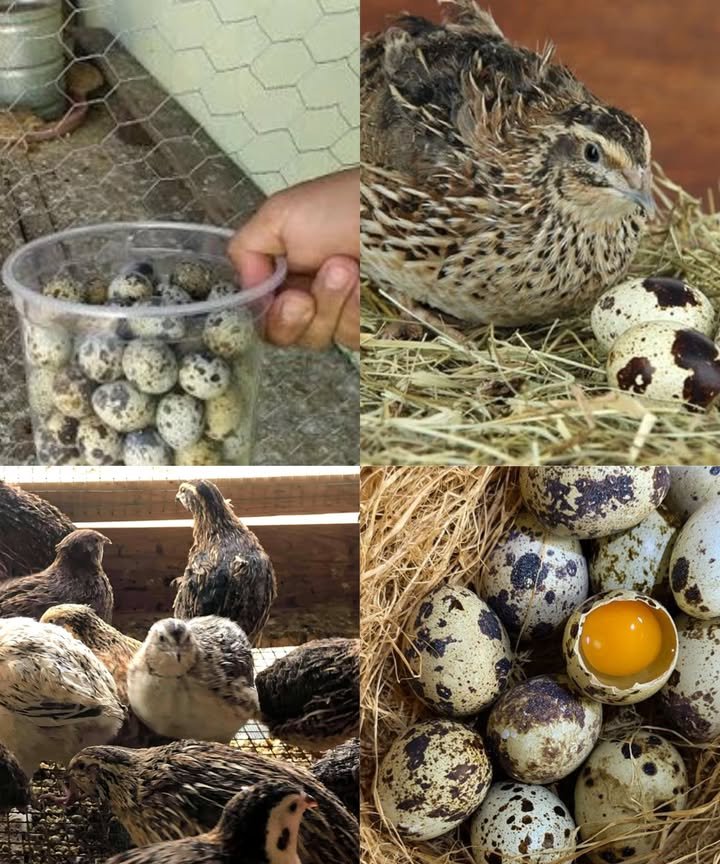
Before diving into the details of quail farming, it’s important to understand why quails are a great choice for poultry enthusiasts.
### **1. Space Efficiency**
Quails require significantly less space than chickens or other poultry birds. A small cage or coop can house several quails, making them ideal for urban farming or those with limited space.
### **2. High Egg Production**
A healthy female quail can lay between **150 to 300 eggs per year**, depending on the breed and care provided. This makes quails an excellent option for those looking to produce fresh, nutritious eggs at home.
### **3. Rapid Growth and Early Maturity**
Quails reach maturity quickly and can begin laying eggs as early as **6 to 8 weeks of age**. Their short production cycle means you can start collecting eggs much sooner than with chickens.
### **4. Low Maintenance**
Compared to other poultry, quails are relatively easy to care for. They require less feed, are resistant to many common poultry diseases, and adapt well to various environments.
### **5. Economic Benefits**
Quail eggs are considered a delicacy in many countries and can be sold at a premium price. Their small size and rich flavor make them highly desirable for gourmet dishes and health-conscious consumers.
## **Basic Requirements for Raising Quails**
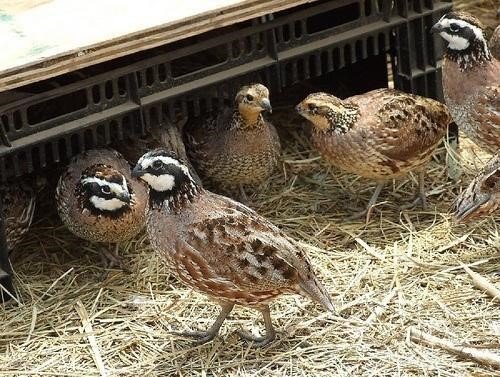
To keep quails healthy and productive, it’s essential to provide them with the right environment, nutrition, and care.
### **1. Housing and Space Requirements**
Quails are small birds, but they still need enough space to move around comfortably. Overcrowding can lead to stress, disease, and lower egg production.
– **Space per bird:** At least **1 square foot (0.1 m²) per quail** is recommended. More space is ideal to prevent aggression and improve well-being.
– **Cage Design:** Quail cages should be well-ventilated, easy to clean, and have a waterproof roof to protect them from weather conditions.
– **Escape Prevention:** Quails can be flighty, so ensure that enclosures are covered to prevent escapes.
– **Nesting Areas:** Provide soft bedding, such as straw or wood shavings, to make the quails comfortable and encourage egg-laying.
### **2. Feeding and Nutrition**
Quails require a **high-protein diet** to maintain their health and egg production. A balanced diet includes:
– **Protein:** At least **20% protein** in their feed is necessary for optimal growth and egg production. Commercial game bird feed is recommended.
– **Grains:** Quails can eat grains such as millet, wheat, and corn.
– **Fruits and Vegetables:** Small amounts of leafy greens, carrots, and other vegetables can be included in their diet.
– **Calcium Supplements:** To support eggshell formation, provide crushed eggshells, oyster shells, or specialized calcium supplements.
– **Fresh Water:** Ensure clean water is always available, as dehydration can reduce egg production.
### **3. Lighting and Egg Production**
Lighting plays a crucial role in egg production. Quails need **14 to 16 hours of light per day** to lay eggs consistently.
– **Natural Light:** If raising quails outdoors, ensure they receive enough sunlight.
– **Artificial Light:** During winter or in indoor setups, use LED or fluorescent lighting to maintain egg production.
## **Essential Care Tips for Healthy Quails**
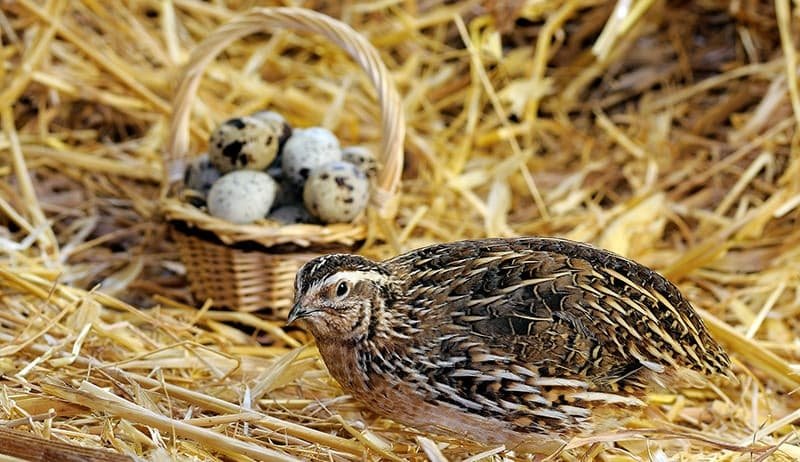
Keeping your quails healthy requires regular maintenance and observation.
### **1. Keeping the Environment Clean**
A clean cage prevents disease and ensures a stress-free environment for your quails.
– **Clean bedding regularly** to avoid moisture buildup, which can lead to bacterial infections.
– **Remove droppings** frequently to maintain good hygiene.
– **Ensure proper ventilation** to reduce ammonia buildup from waste.
### **2. Protecting Quails from Stress and Predators**
Quails are easily stressed, which can negatively impact egg production.
– **Reduce Noise and Disturbances:** Keep their environment calm and quiet.
– **Monitor for Stress Signs:** If quails appear lethargic, stop eating, or show aggression, they may be stressed.
– **Protect from Predators:** Secure enclosures from animals like rats, snakes, and birds of prey.
### **3. Preventing Diseases**
While quails are hardy birds, they are still susceptible to some common poultry diseases.
– **Watch for Symptoms:** Keep an eye out for signs of illness, such as ruffled feathers, reduced appetite, or labored breathing.
– **Quarantine New Birds:** Always separate new birds before introducing them to your flock to prevent disease spread.
– **Use Sanitized Equipment:** Disinfect feeding trays, water dispensers, and cages regularly.
## **Best Quail Breeds for Egg Production**
Different quail breeds have varying egg production rates. Here are some of the most popular breeds:
– **Japanese Quail (Coturnix Quail):** The most common breed for egg production, laying up to **300 eggs per year**.
– **Button Quail:** Smaller in size with lower egg production, but easy to handle.
– **Bobwhite Quail:** Primarily used for meat production, but can also lay a decent number of eggs.
Choosing the right breed depends on your goals—if your primary focus is eggs, **Japanese quails** are the best option.
## **Understanding the Quail Egg Production Cycle**
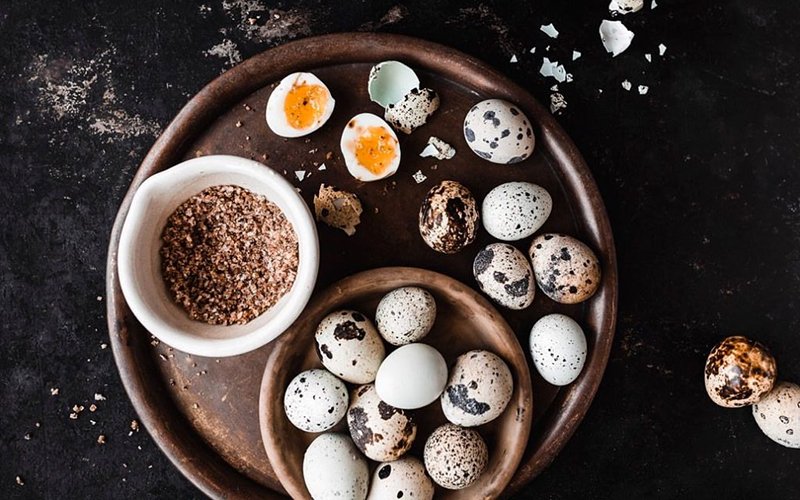
– **Age at First Egg:** **6 to 8 weeks**
– **Peak Egg Production:** Up to **300 eggs per year**
– **Decline in Egg Production:** After **9 months to 1 year**, egg production naturally decreases.
To maintain a steady supply of eggs, you may need to introduce new quails every 6 to 12 months.
## **Additional Tips for Raising Quails Successfully**
– **Limit Aggression:** Quails can be territorial. Provide enough space and separate aggressive birds if necessary.
– **Collect Eggs Daily:** This prevents damage and keeps the nest clean.
– **Control Mating Groups:** For breeding, maintain a ratio of **1 male per 4-5 females** to ensure fertility without excessive aggression.
– **Provide Dust Baths:** Quails enjoy dust baths, which help them stay clean and prevent parasites.
## **Conclusion: Raise Quails the Right Way for Maximum Success**
Raising quails can be a rewarding and profitable venture, but it requires proper care and management. By providing the right housing, diet, lighting, and medical attention, you can ensure your quails stay healthy and productive. Whether you are raising them for eggs, meat, or both, following these essential tips will help you maximize your success.
Are you ready to start your quail farming journey? With the right knowledge and dedication, you’ll soon enjoy a steady supply of fresh, nutritious quail eggs straight from your backyard
